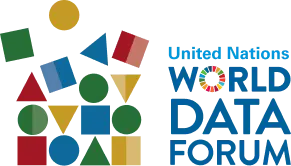

Continuing the World Risk Poll and Resilience Index to 2026 to improve global safety
Lloyd's Register Foundation
Gallup
The objective of this commitment is to help fill data gaps on safety and risk using the World Risk Poll – the first and only global study of worry about, and harm from, risks to people’s safety.
It is our aim that this freely available data be used by governments, regulators, businesses, NGOs and international bodies to inform and target policies and interventions that make people safer. This will support progress towards a number of SDG targets, including but not limited to 3.7 on road traffic accidents, 3.9 on hazardous chemicals, 8.8 on safe working environments, 11.5 on disaster reduction, and 13.1 on climate resilience.
In many parts of the world, little or no official data on safety and risk exists. The information that is collected on accidents, injuries and near-misses is often minimal particularly outside of occupational contexts, and particularly among vulnerable, marginalised and hard-to-reach demographics and communities.
This makes it very hard to define the nature and scale of numerous safety challenges – from road-related accidents and workplace injuries, to unsafe waste disposal and the growing threats to life and property posed by climate change – around the world, and harder still to address them in the absence of comprehensive and reliable data.
There is less data still on how people around the world perceive risks to their safety, and the differences between this perception and their actual experience of harm. Without understanding these differences, it is harder to design and target effective risk management policies and communications.
Lloyd’s Register Foundation commits to continue the World Risk Poll and its associated Resilience Index until at least 2026, engaging and partnering with key stakeholders including relevant UN bodies (as we have already done with the International Labour Organization and United Nations Environment Programme) to ensure the Poll topics and questions are tailored to address pressing data gaps on risk and safety, and that the resulting data will be actionable and directly support their work in these areas.
In 2025, the World Risk Poll will continue to be delivered as part of the Gallup World Poll, giving it unrivalled scale and reach by interviewing almost 150,000 people in over 140 countries.
We will also encourage other researchers to use the data for secondary analysis to create deeper insights, and partner with other organisations to create programmes and initiatives that help tackle the safety issues raised. Lloyd’s Register Foundation will continue to periodically make funding available to support such projects.
Meanwhile, we aim to use the Poll and its resulting projects to demonstrate the value of this data on safety and risk and encourage national statistical systems to collect it, creating a sustained impact beyond the lifecycle of the World Risk Poll.
Lloyd’s Register Foundation has already commissioned a specialist independent agency to evaluate the impact of the World Risk Poll, the outcome of which will help inform the potential recommissioning of the Poll beyond 2026.
In evaluating its success, we will consider a number of factors including any developments in policy and practice (including statistical practice) informed by its findings, the number of external researchers and organisations making use of the data, the impact of the projects we fund to put the data into action, and qualitative feedback from key stakeholders including UN agencies.
